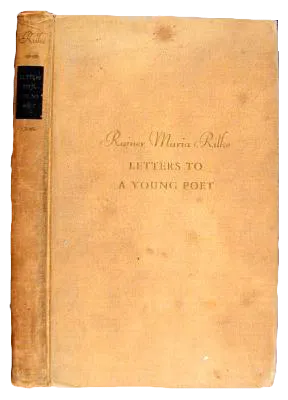
Are you a scholar thinking about getting into blogging or some other form of public engagement? Then this post is for you. Really, it’s a condensation of some of my comments at a panel last weekend at the American Political Science Association convention in San Francisco. This featured some of the writers from the Monkey Cage and Mischiefs of Faction gathered together to talk about the public role of scholars.
I was asked to dispense some advice for would-be bloggers. My first piece of advice was a quote from Rainer Maria Rilke. I took some crap for this so I’m going to double down on this advice here. Rilke, advising a protégé on whether to become a writer, suggested thusly:
Go into yourself. Find out the reason that commands you to write; see whether it has spread its roots into the very depths of your heart; confess to yourself whether you would have to die if you were forbidden to write. This most of all: ask yourself in the most silent hour of your night: must I write? Dig into yourself for a deep answer. And if this answer rings out in assent, if you meet this solemn question with a strong, simple “I must,” then build your life in accordance with this necessity; your whole life, even into its humblest and most indifferent hour, must become a sign and witness to this impulse.
This may seem a bit overwrought but it’s still good advice. Blogging and other related forms of public engagement are not well-compensated activities. You may be insulted and criticized for your words. Possibly worse, you may be ignored. It will take up time that you could be spending working toward tenure, prepping a class, hanging out with friends and family, or watching a sunset. I’m guessing very few people have said on their deathbeds, “I should have blogged more.” If you’re thinking of taking this on, it’s helpful if the task of writing for the public is something you find pleasurable in itself.
Even given all these concerns, I generally find blogging to be a rewarding task. It is, at least, a useful counter to some of the downsides of scholarly writing. Publishing work in books and journals is certainly important and satisfying, but it’s also painstaking and slow. If you have something to say about a current event that ties into your own research, the idea of spending a year writing something and then seeing journal reviewers and editors argue about it for another two years only to have it rejected because Reviewer 2 didn’t think it was theoretically motivated enough just might not be ideal. Blogging offers more immediacy, more readership, and, for better or worse, more feedback.

If you’re going to do it, think about what your value added is. What is your voice? I launched my first blog, Enik Rising, with the aim of basically discussing anything that interested me, from politics to pastries to science fiction. That was perfectly enjoyable, but it’s hard to build a following that way.
Chances are, you have some expertise that others don’t have. If you’ve written a dissertation, you know a topic better than almost anyone else in the world. The trick is to leverage that expertise into some relevant commentary. The world doesn’t need another pundit babbling vaguely about absolutely every subject that comes along. But it might just want your perspective, using your expertise to enlighten a subject.
Just to suggest a few examples of this sort of commentary, from some Mischiefs and Monkeys writers:
- John Sides’ interview with himself about what it means for politics to be “broken.”
- Jonathan Ladd’s piece depicting Jon Stewart as an early 20th-century Progressive.
- Julia Azari’s recent post describing Donald Trump as a 19th-century president trapped in 21st-century roles.
- Jennifer Victor’s advice to educators trying to teach American politics in the Trump era.
This is hardly an exhaustive list of great blog posts or writers, but each struck me as a particularly good balance of author expertise, relevance to current events, and relatability. There are worse models out there for finding one’s own voice and potential contribution to our dialogue. If you want to join this endeavor, it’s good to take a bit of time to think about just what you want your contribution to be.
[“Source-psmag”]
